
Two cell mutations have been linked to acute myeloid leukemia, but the reason for their cooperation has been unknown.

Two cell mutations have been linked to acute myeloid leukemia, but the reason for their cooperation has been unknown.

The funding is awarded to health departments representing 57 geographic areas to expand treatment and prevention efforts for HIV/AIDS.

The black-white disparity in breast cancer mortality has remained stable since 2011 after widening over the past 3 decades.

Study offers a new perspective on the molecular events that may lead some individuals to develop multiple sclerosis.

Top news of the day from across the health care landscape.

The PREVENT trial revealed that secukinumab demonstrated both efficacy and a favorable safety profile for patients with non-radiographic axial spondyloarthritis (nr-axSpA).

The National Institute on Aging (NIA) has launched 2 new research centers, the Alzheimer Centers for the Discovery of New Medicines, designed to diversify and strengthen the Alzheimer disease drug development pipeline.
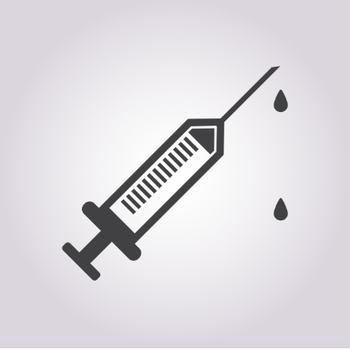
Top news of the day from across the health care landscape.

Niraparib (Zejula) found to prolong time without symptoms or toxicity in patients with ovarian cancer.
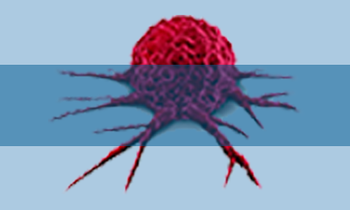
The FDA’s accelerated approval program has been criticized recently for pushing drugs into the market before they undergo randomized phase 3 clinical trials.
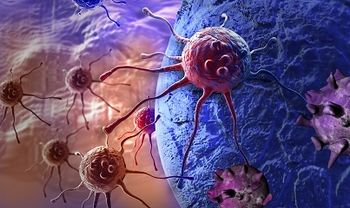
Fulvestrant injection treats certain types of breast cancer in post-menopausal women who were not previously treated with endocrine therapy and as a combination for advanced or metastatic breast cancer.

Ivosidenib improved progression-free survival with a promising trend toward improved overall survival in patients with IDH1-mutated cholangiocarcinoma.

Apalutamide (Erleada) showed an overall survival benefit in patients with non-metastatic castration-resistant prostate cancer.

A regimen of neoadjuvant pembrolizumab plus chemotherapy, followed by adjuvant pembrolizumab as monotherapy, led to an increased pathological complete response.

A session at the ESMO Congress 2019 highlighted potential prevention and treatment strategies for life-threatening immunotherapy toxicities in patients with cancer.

Top news of the day from across the health care landscape.
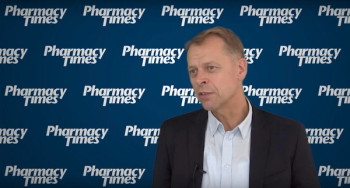
At the ESMO Congress 2019, Ulrik Lassen, MD, PhD, oncology professor at the University of Copenhagen, discussed the increasing value of precision medicine in oncology and what will be needed to facilitate the use of precision medicine as more agents become available.

At the ESMO Congress 2019, Ulrik Lassen, MD, PhD, oncology professor at the University of Copenhagen explained the challenges in identifying and treating TRK fusion cancer in patients.

New data confirm high activity of larotrectinib in pediatric and adult patients with TRK fusion cancer.

The report highlighted the reasoning for the drug shortage as well as specific applicants and manufacturers that the agency will be working with to mitigate the supply of Ig products.

With more novel therapies entering the market, costs are on the rise, however, new research suggests that the price tag may not reflect the drug’s clinical value.

At the ESMO Congress 2019, Ulrik Lassen, MD, PhD, professor of oncology at the University of Copenhagen, discussed the newly-released clinical data highlighting new overall survival and progression-free survival results for larotrectinib (Vitrakvi, Bayer) in tropomyosin receptor kinase (TRK) fusion cancer.

Treatment with a CDK4/6 inhibitor plus fulvestrant found to improve overall survival in women with hormone receptor-positive, human epidermal growth factor 2-negative advanced breast cancer.

The addition of the immunotherapy pembrolizumab (Keytruda) to standard presurgical chemotherapy improved pathological complete response (pCR) rates for patients with triple-negative breast cancer (TNBC).

A pharmacist and nurse led non-medical prescribing clinic that was focused on side effect management and survivorship support for patients with melanoma helped to improve common every-day pressure seen in a medical day unit and improved overall patient experience.
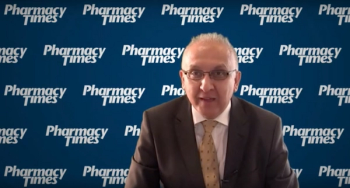
At the ESMO Congress 2019, Mansoor Raza Mirza, MD, chief oncologist at Copenhagen University Hospital, talked about how ovarian cancer treatment has evolved over the years.

The PRIMA study evaluated the efficacy and safety of niraparib therapy after response to platinum-based chemotherapy in patients with newly-diagnosed ovarian cancer.

At the ESMO Congress 2019, Mansoor Raza Mirza, MD, chief oncologist at Copenhagen University Hospital, discussed the role of oncology pharmacists in managing the treatment of patients with ovarian cancer.

New data presented at the ESMO Congress 2019 showed that a 2-drug immunotherapy combination improved overall survival in patients with advanced non-small cell lung cancer.